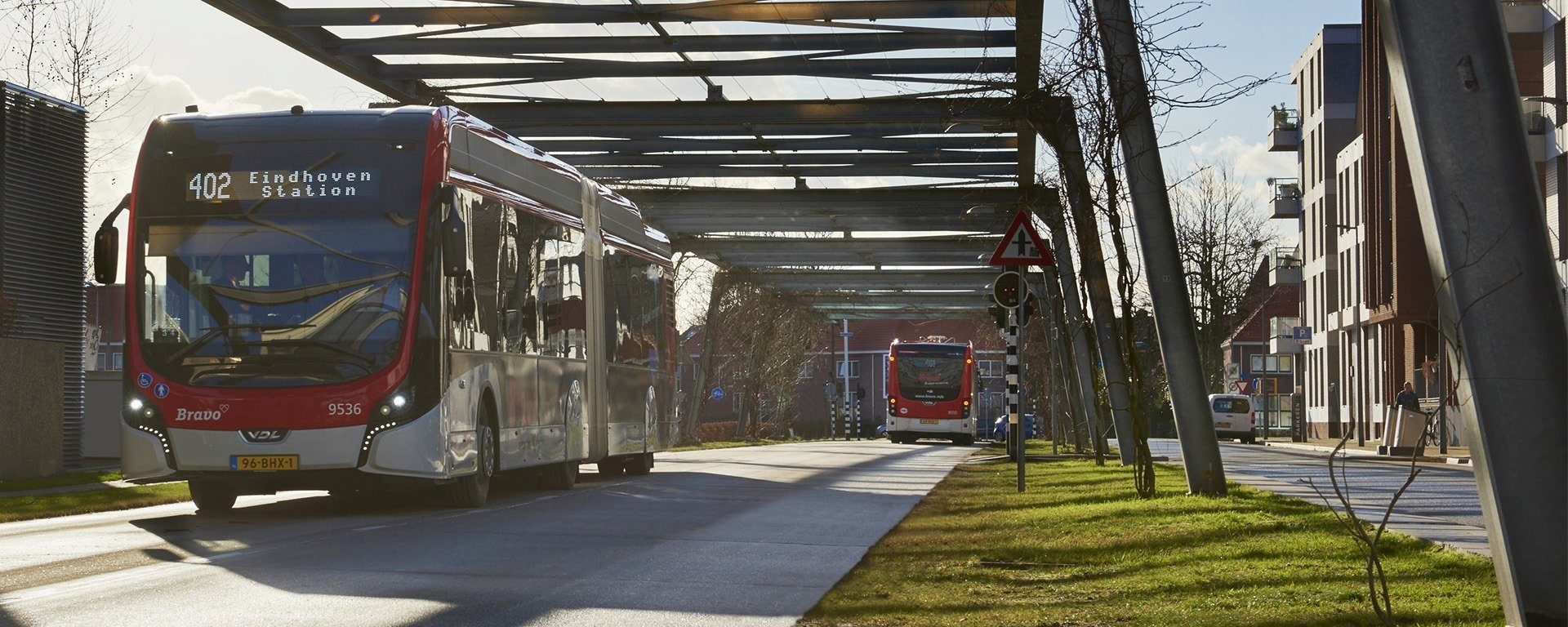Transdev organise les 6 et 7 juin 2019 à Amsterdam la quatrième édition de son "Living Lab" Zéro Emission après Nice en 2015, Eindhoven (Pays-Bas) en 2016 et Enghien-les-Bains en 2017.
Le site d'Amsterdam n'a rien d'étonnant puisque c'est là que le plus grand parc de bus électriques zéro émission (ZE) d'Europe, exploité par Transdev, est en service depuis avril 2018. Avec une flotte de 100 bus électriques, qui passera à plus de 260, le réseau d'Amsterdam est pionnier en Europe. Depuis le début de son exploitation, Transdev a déjà parcouru plus de 20 millions de kilomètres avec des bus électriques 100% zéro émission.
Communiqué de presse
TéléchargerAu coeur du « Living Lab » Zéro Emission de Transdev – qui rassemble des représentants de Transdev, des autorités organisatrices de mobilité, des organismes gouvernementaux et des universitaires – il s’agit de fournir des informations sur les enjeux, un aperçu des solutions disponibles dans un contexte d’évolution rapide des technologies, des méthodes « open source » et une vision de l’avenir. Tout ceci permet à ses membres d’agir avec raison pour prendre les bonnes décisions en termes d’investissement à long terme. Telle est notre vision du partenariat Living Lab : partager, informer et faciliter.
Le passage à des solutions ZE pour Transdev et pour notre secteur est une préoccupation majeure ; l’industrie du transport représentant environ 22% des émissions mondiales de CO2 liées à l’énergie. L’objectif du développement et du déploiement des solutions ZE est un engagement sociétal de Transdev pour améliorer la qualité de l’air dans nos villes, réduire les nuisances sonores et améliorer la vie à bord pour les passagers et le confort de conduite pour les conducteurs.
« La transition énergétique pour Transdev n’est pas une option, c’est un engagement. Il s’agit d’un engagement à convertir rapidement le parc de véhicules de notre Groupe à une part croissante de véhicules à faibles émissions et à zéro émission. Réduire la dépendance économique et énergétique aux énergies fossiles est une priorité pour Transdev et pour l’Europe afin d’assurer une véritable transformation de notre modèle économique vers une mobilité verte toujours plus propre. Chez Transdev, nous sommes déjà bien avancés dans cette voie et nous continuerons à aller dans cette direction », a déclaré Thiery Mallet, Président-directeur général du Groupe Transdev.
Depuis le lancement du réseau de bus électriques Amstelland-Meerlanden avec 100 bus électriques en avril 2018, Transdev-Connexxion a montré qu'un effort collectif public-privé contribue à la mise en oeuvre de cette solution de transport sans carbone. Malgré de nombreux défis - technologiques, industriels, opérationnels et économiques - ce réseau innovant est un succès et continuera à se développer dans les années à venir.
Sharon Dijksma, Maire-adjointe de la ville d'Amsterdam en charge de la circulation, des transports, de l'eau et de la qualité de l'air.
Au-delà des bus à batteries, Transdev a décidé d’explorer activement les bus électriques à hydrogène et à pile à combustible, avec des projets aux Pays-Bas et en France. Cette technologie est très prometteuse pour l’avenir. Les piles à combustible constituent un moyen embarqué de produire l’électricité nécessaire à l’alimentation du moteur électrique. Ils fonctionnent à l’hydrogène qui, combiné à l’oxygène de l’air, produit
l’électricité nécessaire à la traction. Les seules émissions sont de l’eau et de la vapeur d’eau… Le résultat : une pollution zéro dans l’environnement et une autonomie de plus de 350 km avec une solution embarquée.
Aux Pays-Bas, Transdev a deux projets : le projet HWGO avec quatre bus à hydrogène en exploitation et un autre projet à Eindhoven avec deux bus prévus. En France, Transdev a trois projets dans le domaine de l’hydrogène : le premier à Lens sur notre réseau TADAO, où nous dévoilerons bientôt une ligne complète de BHNS utilisant six bus électriques à hydrogène. Le deuxième projet hydrogène sera à Auxerre et le troisième à l’aéroport de Toulouse.
Fin 2018, Transdev exploitait déjà plus de 600 bus et minibus électriques sur 30 sites dans 7 pays et devrait atteindre les 700 à la fin de cette année. Par ailleurs, grâce aux engagements opérationnels pris dans le cadre de contrats et d’appels d’offres en cours, Transdev prévoit d’exploiter plus de 1 500 bus électriques d’ici 2024.
En tant qu’opérateur et intégrateur global de mobilités, Transdev, The mobility company, permet à tous de se déplacer librement. Transdev transporte 11 millions de passagers au quotidien grâce à ses différents modes de transport efficaces et respectueux de l’environnement, qui connectent les individus et les communautés. Transdev conseille et accompagne, dans une collaboration durable, les collectivités territoriales et les entreprises dans la recherche de solutions de mobilité plus sûres et innovantes : ce sont 82 000 femmes et hommes au service de ses clients et passagers. Transdev est codétenu par la Caisse des Dépôts à 66% et par le Groupe RETHMANN à 34%. En 2018, présent dans 20 pays, le Groupe a réalisé un chiffre d’affaires de 6,9 milliards d’euros.
Retrouvez-nous sur www.transdev.com ou téléchargez l’application MY Transdev depuis l’App Store ou Google Play.

